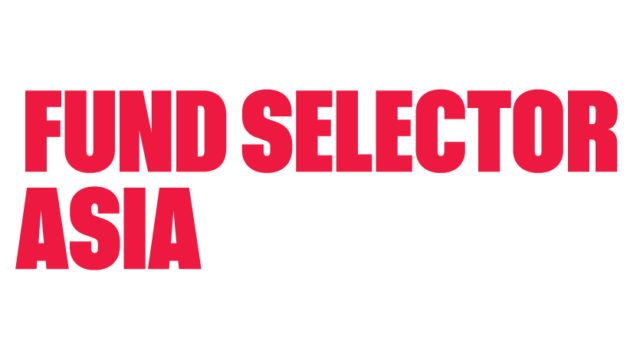These funds use dynamic asset allocation strategies, which are intended to beat market cycles, generate returns and at the same time control the downside risk.
Fund houses have also been expanding their multi-asset product offerings this year to meet investor demand.
Against this backdrop, investment expert Ryan Sim, vice president, global wealth management at OCBC Bank, provides a comparative analysis of the JP Morgan Global Income Fund and the BlackRock Global Multi-Asset Income Fund.
Both funds follow a flexible allocation strategy to provide investors with a regular income by investing in a mix of income-generating securities globally.
Taking a closer look at each fund’s strategy, it becomes evident that each fund manager has a different investment approach.
Investment strategy review
Based on the respective fund factsheets and Morningstar data as of 31 October, the JP Morgan fund has approximately 47% of its portfolio allocated in equities, about 10% more than that of BlackRock fund, said Sim.
The JP Morgan fund has about 45% of exposure in fixed income securities while the BlackRock fund has a higher allocation of 60%.
“The divergence suggests that the JP Morgan managers are more aggressive in their allocation as compared to the BlackRock managers, [which is] probably a reflection of their outlook on the markets or bottom fishing after the recent market correction,” Sim said.
On top of a higher equity allocation, the top three equity sectors (financials, consumer discretionary and energy) for the JP Morgan fund are cyclical in nature. The BlackRock fund has a mix of cyclical and defensives (financials, consumer staples and real estate).
“It is also interesting to note from the latest BlackRock fund factsheet that the top thee holdings are bond funds and exchange traded funds managed by BlackRock or iShares, probably an indication of a preference to tap internal capabilities for part of their fixed income exposure.”
For example, the BlackRock manager has invested in funds such as the BlackRock Global Funds USD High Yield Bond Fund, BlackRock Global Funds Asian Tiger Bond Fund and iShares High Yield Bond Fund.
Performance review
Both the fund houses have their own customised benchmarks for measuring performance.
The JP Morgan fund has constituted an index wherein the MSCI World Index Net (US dollar hedged) has 35% weighting, Barclays US High Yield 2% Issuer Cap Index has a 40% weighting and Barclays Global Credit Index (US dollar hedged) has a 25% weighting.
The BlackRock fund, on the other hand, benchmarks itself 50% against theMSCI World Index plus 50% against the Barclays Capital Global Aggregate Bond Index Hedged.
The Singapore dollar share class in the JP Morgan fund was launched in September 2012, but the euro share class has existed since 2008. The BlackRock fund has been in operation since June 2012.
“Due to the short history of both funds, it wouldn’t be fair to draw firm conclusions from their performance. But, based on the short historical returns perspective, the JP Morgan fund has outperformed the BlackRock fund across the covered time periods,” noted Sim.

For Sim, this does not come as a surprise given the aggressive positioning of the JP Morgan fund in terms of equity exposure compared to the BlackRock fund, and the positive market performance over the past two years.

“The JPM fund was able to benefit from the strong market performance and provide returns in excess of the BlackRock fund.”
“However, if we look at the recent correction from 3 September to 16 October, the BlackRock fund outperformed JP Morgan with a smaller drawdown of (-) 3.9% compared to (-) 5.4% from the latter.”
Portfolio Managers

Michael Schoenhaut and Talib Sheikh have been the co-managers for the JP Morgan fund since December 2008. Schoenhaut is the head of portfolio construction and implementation for the global multi-asset group in the US.
Sheikh, who has been with JP Morgan since 1998, is a portfolio manager in the global multi-asset group, responsible for managing total return, balanced and tactical asset allocation overlay accounts.

Michael Fredericks has been managing the BlackRock fund since November 2013. Fredericks is joined by deputy managers Justin Christofel and Peter Wilke in managing the fund.
Incidentally, Fredericks who previously worked at JP Morgan, was a portfolio manager for the JP Morgan Global Income Fund during December 2008-April 2011, according to FE Analytics data.
Fees

The initial investment fee is 5% for both funds. But the JP Morgan fund charges a lower annual management fee of 1.25% compared to the BlackRock fund, which levies a 1.50% annual management charge.
The total expense ratio for the JP Morgan fund for the financial year ended 31 December was 1.45%. The TER of the BlackRock fund is 1.91% for the year ended 31 August.
Conclusion

“It appears that the JP Morgan fund is more suitable for investors looking for greater upside capture, while willing to take the associated risk,” Sim said.
“Conversely, the asset allocation of the BlackRock fund suggests a more defensive nature, which should provide more risk management and would suit investors who place risk management as a top priority,” he said.

















